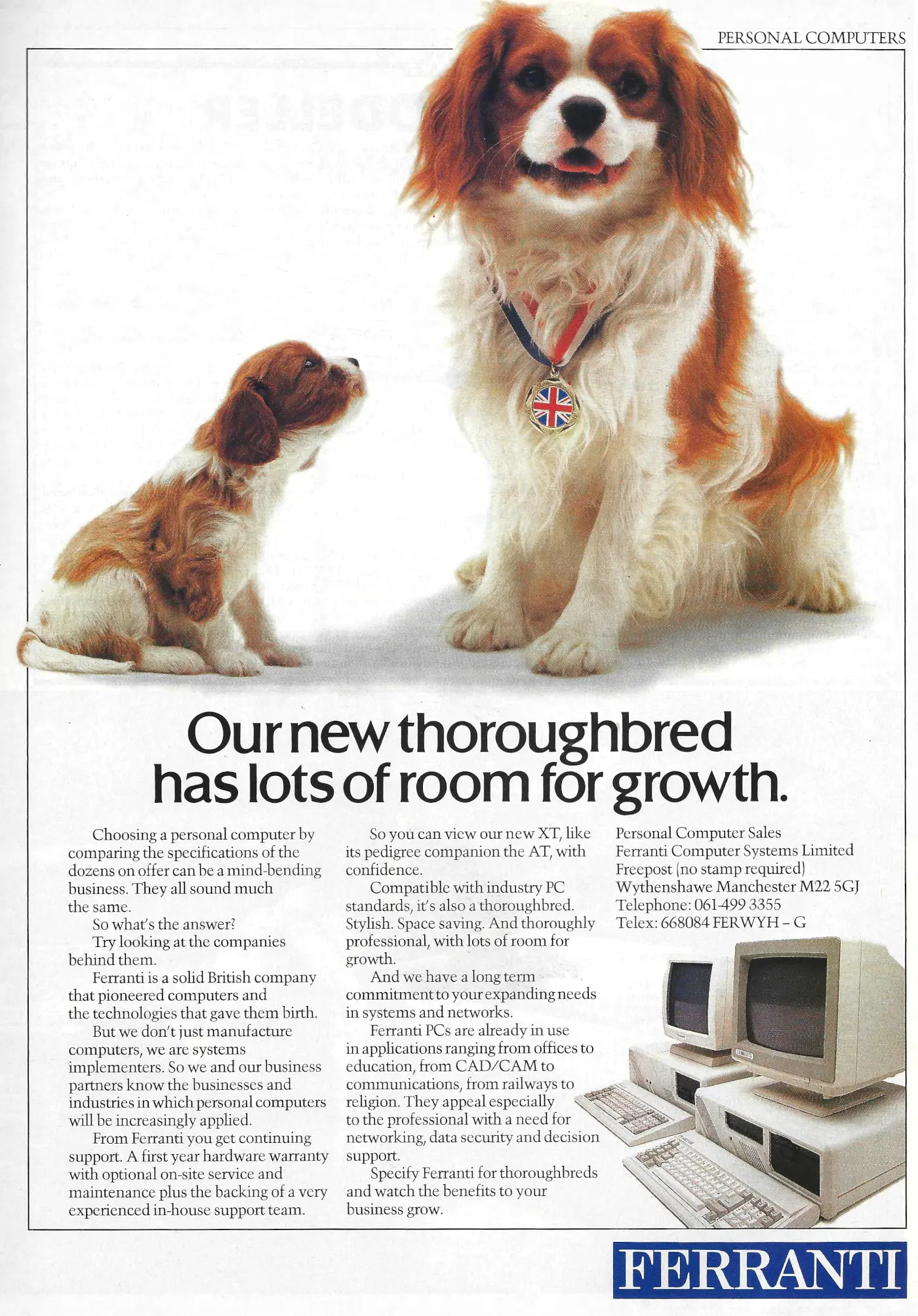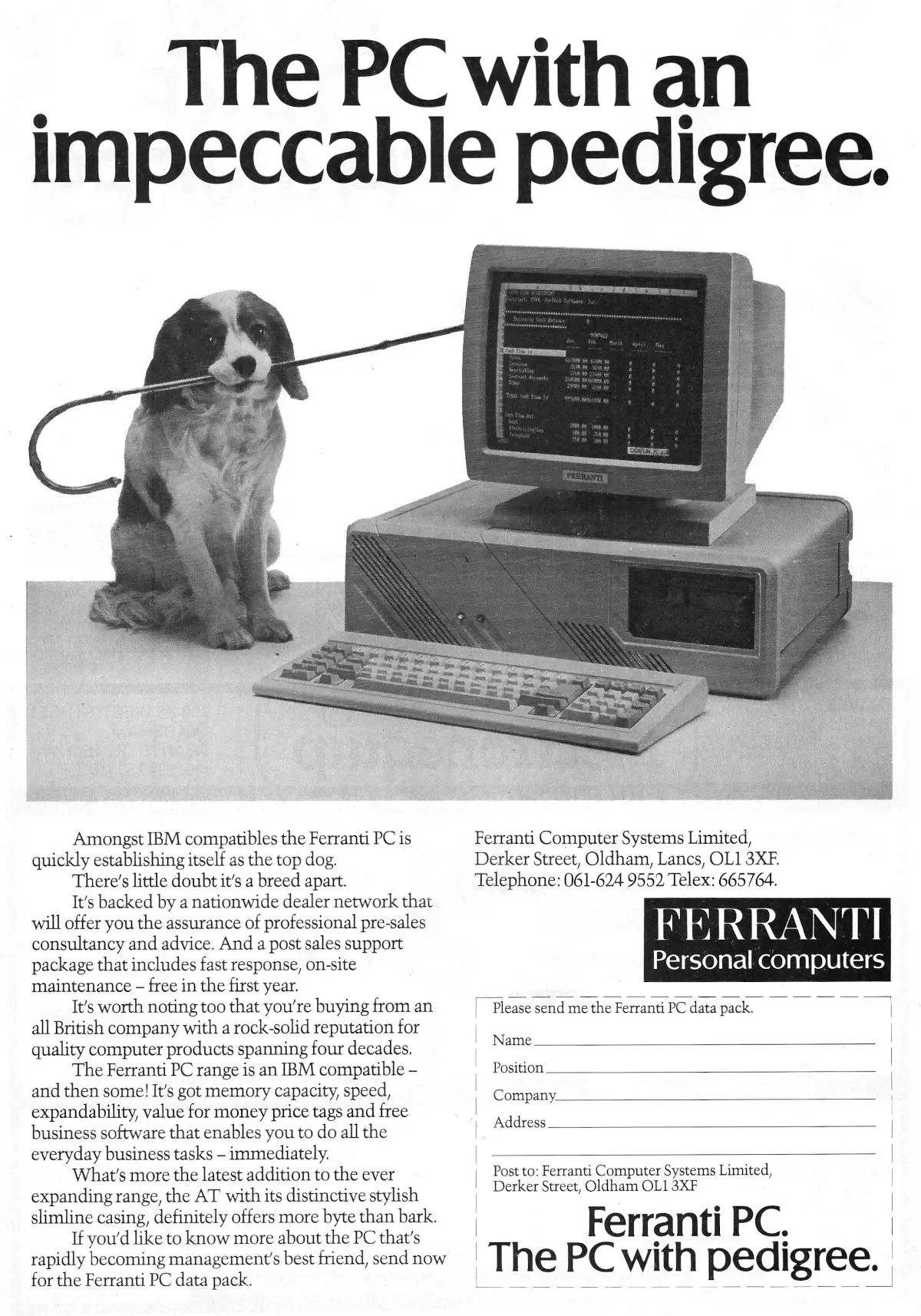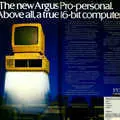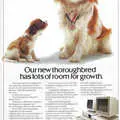
Ferranti Advert - February 1987
From Practical Computing

Our new thoroughbred has lots of room for growth
Perhaps confusing the world of thoroughbred horses for that of pedigree dogs, this advert from Ferranti is for its new XT IBM-compatible personal computer.
It's a bit confusing though, as Ferranti already had an AT model, and yet the XT was IBM's first update to its original 5150 PC when it was released in the spring of 1983.
The AT, which finally presented a decent upgrade as it was built around Intel's new 80286, was released by IBM the following year.
Ferranti's PC line was fully compatible with the IBM, unlike its previous Argus micro from 1984. Whilst this was a 16-bit machine, it ran CP/M-86 rather than MS-DOS.

The original Ferranti PC AT, from Practical Computing, June 1986. Note the clear dig at IBM, with the dog holding Charlie Chaplin's cane in its mouth.
Ferranti had been established in the UK in 1885 and had built its first computer in 1951, however it was probably more famous - at least in the home computer industry - as a chip supplier, in particular for the custom ULA chips that both Sinclair and Acorn used. The advert goes a bit further in claiming that the company "pioneered computers and the technologies that gave them birth".
The XT got a middling review in February 1987' Practical Computing, where John Lee concluded:
"The Ferranti XT is a thoroughly IBM-compatible British-built micro. The build and finish of the machine and keyboard are of good quality, but its performance - especially in respect of the floppy discs - is no more than average. Those who are prepared to pay for a reliable, heavy-duty machine for business use may find the Ferranti a more attractive proposition than the rock-bottom clones[1]".
Ferranti's chip business was sold to Plessey - another once-famous British company - whilst the rest of the company went bankrupt in 1993.
Date created: 16 February 2024
Last updated: 11 December 2024
Hint: use left and right cursor keys to navigate between adverts.
Sources
Text and otherwise-uncredited photos © nosher.net 2026. Dollar/GBP conversions, where used, assume $1.50 to £1. "Now" prices are calculated dynamically using average RPI per year.

